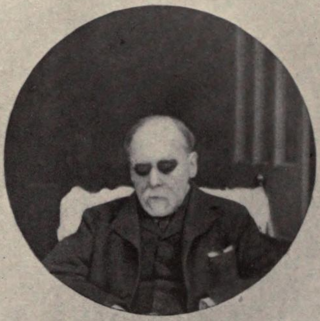Related Research Articles

The history of Qatar spans from its first duration of human occupation to its formation as a modern state. Human occupation of Qatar dates back to 50,000 years ago, and Stone Age encampments and tools have been unearthed in the Arabian Peninsula. Mesopotamia was the first civilization to have a presence in the area during the Neolithic period, evidenced by the discovery of potsherds originating from the Ubaid period near coastal encampments.
Major-General Sir Percy Zachariah Cox was a British Indian Army officer and Colonial Office administrator in the Middle East. He was one of the major figures in the creation of the current Middle East.

Greater Tunb and Lesser Tunb are two small islands in the eastern Persian Gulf, close to the Strait of Hormuz. They lie at 26°15′N55°16′E and 26°14′N55°08′E, respectively, some 12 kilometres (7.5 mi) from each other and 20 kilometres (12 mi) south of the Iranian island of Qeshm. The islands are administered by Iran as part of its Hormozgan Province.

The Persian Gulf Residency was a subdivision of the British Empire from 1822 until 1971, whereby the United Kingdom maintained varying degrees of political and economic control over several states in the Persian Gulf, including what is today known as the United Arab Emirates and at various times southern portions of Iran, Bahrain, Kuwait, Oman, and Qatar.

The Residencies of British India were political offices, each managed by a Resident, who dealt with the relations between the Government of India and one or a territorial set of princely states.
In the British Empire a Political Resident or Political Agent was the incumbent of an official diplomatic position involving both consular duties and liaison function.
Sir Oliver Beauchamp Coventry St John was an administrator in British India, who took a close interest in the zoology of the region. He served as the chief commissioner of Baluchistan for ten years and was involved in the establishment of a telegraph network to India.

Khor Al Adaid, is a settlement and inlet of the Persian Gulf located in Al Wakrah Municipality in southeast Qatar, on the border with Saudi Arabia. Approximately 78 kilometres (48 mi) south of the capital Doha, it is also known to local English speakers as the "Inland Sea". In the past it used to accommodate a small town and served as the center of a long-running territorial dispute between Sheikh Jassim bin Mohammed Al Thani and Sheikh Zayed bin Khalifa Al Nahyan. At the present, it is a major tourist destination for Qatar.
Shaikh Isa Bin Tarif Al Bin Ali was chief of Al Bidda, known today as Doha, the capital of Qatar, as well as the chief of the Al Bin Ali tribe from the beginning of the 19th century until his death in 1847. He was described by the political agents in the Persian Gulf as being one of the most energetic and powerful chiefs in the Gulf region
Sir Frederick William Johnston, (1872–1947) was a colonial administrator in British India.
Sir William Rupert Hay was a British Indian Army officer and administrator in British India. He served as Chief Commissioner of Balochistan during the colonial era.

Bahrain–United Kingdom relations are the bilateral relations between Bahrain and the United Kingdom. Bahrain has an embassy in London and the United Kingdom is one of only four European countries to maintain an embassy in Manama. Bahrain gained independence from the United Kingdom in 1971 and has since maintained strong diplomatic, military and trade relations.
Sir William Henry Tucker Luce was a British colonial administrator and diplomat. He served as the governor and commander-in-chief of Aden from 1956 to 1960.

Samuel Barrett Miles was a British Army officer who served as a diplomat in various Arabic-speaking countries, notably Oman, which he came to know better than any other European of the time. The notes that he made were published after his death as The Countries and Tribes of the Persian Gulf.

Piracy in the Persian Gulf describes the naval warfare that was prevalent until the 19th century and occurred between seafaring Arabs in Eastern Arabia and the British Empire in the Persian Gulf. It was perceived as one of the primary threats to global maritime trade routes, particularly those with significance to British India and Iraq. Many of the most notable historical instances of these raids were conducted by the Al Qasimi tribe. This led to the British mounting the Persian Gulf campaign of 1809, a major maritime action launched by the Royal Navy to bombard Ras Al Khaimah, Lingeh and other Al Qasimi ports. The current ruler of Sharjah, Sultan bin Muhammad Al Qasimi argues in his book The Myth of Piracy in the Gulf that the allegations of piracy were exaggerated by the East India Company to cut off untaxed trade routes between the Middle East and India.

John Gordon Lorimer CIE, also known as J. G. Lorimer, was a British diplomat, historian and colonial administrator. Working for the British Raj in Punjab and the Northwest frontier province, he later served in the Gulf region as British Political Resident. He is most famous for his encyclopedia, the Gazetteer of the Persian Gulf, Oman and Central Arabia.
Grigoriy Lvovitch Bondarevsky was a Russian academician, writer, historian, Indologist and a professor at the Diplomatic Academy of the erstwhile Soviet Union. He was the author of 27 books and over 300 articles, majority of them covering Asian topics. The Government of India awarded him the fourth highest civilian award of the Padma Shri in 2000.
The Senior Naval Officer, Persian Gulf, was a Royal Navy command appointment who was responsible for administering the Persian Gulf Station military formation including its establishments and naval forces known as the Persian Gulf Squadron later called the Persian Gulf Division. Initially located at Basidu, Qishm Island, in Persia, then Henjam Island in Persia (1911–1935), and finally Ras Al-Jufair, Bahrain (1935–1972).
Colonel Samuel Hennell was a British Indian Army officer and Colonial Office administrator in the Middle East. He was the British Political Resident for the Persian Gulf from 1838 to 1852 and has been hailed as: 'without doubt the greatest Political Resident Britain has ever had in the Persian Gulf.'
The Perpetual Maritime Truce of 1853 was a treaty signed between the British and the Rulers of the Sheikhdoms of the Lower Gulf, later to become known as the Trucial States and today known as the United Arab Emirates. The treaty followed the effective subjugation of the Qawasim maritime federation and other coastal settlements of the Lower Gulf by British forces following the Persian Gulf campaign of 1819, a punitive expedition mounted from Bombay which sailed against Ras Al Khaimah, and which resulted in the signing of the General Maritime Treaty of 1820.